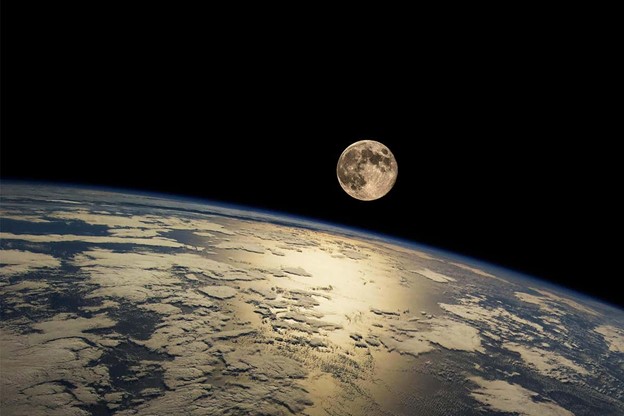
To listen to this reflection as a podcast, click here.
What makes the world go round?
Vocal artists and astronomers provide different answers.
The Stylistics sang that people make the world go round. Soul crooner Deon Jackson and the rock group KISS proclaimed that love is what keeps things spinning. For the cynical, the musical Cabaret hits just the right notes: “Money makes the world go round.”
With regard to planetary physics, astronomers have determined that Earth’s rotation is part of the original angular motion of all the primordial components of our solar system. In other words, our sun has always been surrounded by objects that are not only revolving around it, but spinning like tops at various speeds.
At an early stage of the solar system’s development, things were very exciting. Comets and other debris regularly crashed into the larger bodies, adding to their mass. The earliest spheres were a bit like billiard balls careening around the sun.
Astronomers have found compelling evidence that a Mars-sized planet collided with the Earth about 4.5 billion years ago. This would have been something to see. All things considered, it’s a good thing none of us was anywhere in the neighborhood. The smaller planet shattered into myriad pieces that went into orbit around the Earth, which means for a while we actually had a Saturn-like ring.
The collision transformed Earth in radical ways. Our rotation was accelerated so dramatically that an average day (that is, one complete spin) lasted only five hours. Our axis was also knocked slightly off-kilter, which is why we are blessed with seasons. By contrast, the huge planet Uranus spins completely on its side, rotating “north to south” instead of “east to west.” We can only imagine what kind of planetary collision produced such an extraordinary effect.
The debris around the Earth gradually coalesced into the moon, our one and only natural satellite.
The moon is a miracle. It tugs at the world’s oceans, creating the tides, preventing them from becoming gigantic stagnant ponds. And it acts like a brake, progressively slowing Earth’s rotation. Think of one of those “whirligigs” on a playground where kids spin around in circles. The moon is like a kid dragging his foot in the dirt, gradually reducing our planet’s angular momentum. Interestingly, our days are now two seconds longer than they were in Bible times.
Still, we’re moving pretty quickly. The Earth is spinning at just over 1,000 miles per hour. Why don’t we feel anything? Why don’t we blow right off the surface into space? The answer is that Earth’s atmosphere is spinning right along with the planet, which creates the impression that we’re not moving at all.
If all this seems like a hodgepodge of details connected to a story of random cosmic violence, astronomers, over the past few decades, have come to another realization.
Earth is the Goldilocks planet.
It’s not too hot and not too cold. Not too close to the sun and not too far away. Magnetic fields shield us from cosmic rays. Tectonic plates circulate salts and minerals, preventing the oceans from “salting up” and becoming inhospitable to life. Our solar system is located in one of the outer bands of the Milky Way galaxy, keeping us safe from the turbulence of the galactic core. Scientists can now identify more than 100 “just-right” qualities that make the Earth a perfect place for human life. If even one of them varied only slightly, our existence would come to an end.
Cosmologists admit this is remarkable.
The British theoretical physicist Stephen Hawking writes in A Brief History of Time (the best-selling, and almost certainly the least read, science book of all time): “It would be very difficult to explain why the universe should have begun in just this way, except as the act of a God who intended to create beings like us.”
American physicist Freeman Dyson writes, “The more I examine the universe and study the details of its architecture, the more evidence I find that the universe in some sense must have known that we were coming.” It’s worth noting that Dyson was a Christian, while Hawking never surrendered his skepticism.
And what about Israel’s ancient poets?
The author of Psalm 24, traditionally identified as King David, writes, “The earth is the Lord’s, and everything in it, the world and all who live in it” (24:1).
The reason we live on the just-right planet is that God designed it that way.
It may seem that Earth’s origins were marked by sheer chaos. But God knew we were coming. And he superintended things in such a way that we who bear his image have an amazing place to live – as far as we know, the only planet with such characteristics in the entire cosmos. And, as far as we know, the only planet where God himself has become one of the inhabitants.
What makes the world go round?
God makes the world go round – yesterday, today, and until Jesus comes once again to this uniquely special place.
